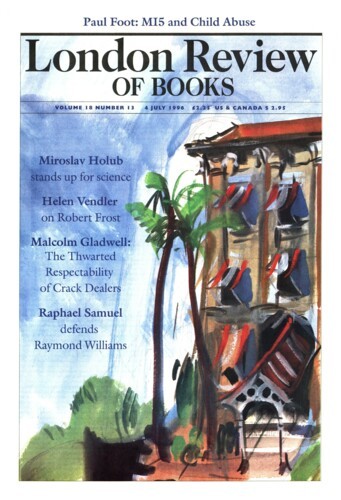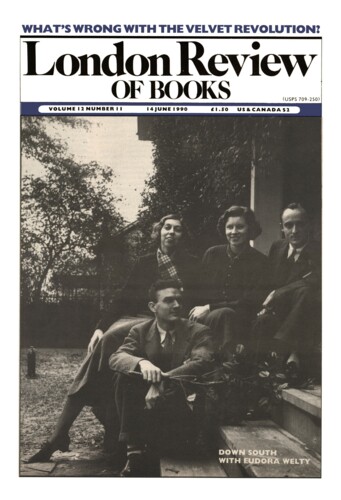Chemical Common Sense
Miroslav Holub, 4 July 1996
The ‘courage of not knowing’ is in fashion among artists nowadays and the new democracies of Central Europe excel in it. Science is almost a dirty word, or, at best, simply one of many ways to acquire knowledge. Publishers and editors seem to believe that the broad public underwent a mutation after 1989 when they started to hate molecular genetics, taking up instead with psychedelic phenomena and the works of St Augustine. It is, in many ways, an interesting situation; the new political freedom in Central Europe looks likely to bear the imprint of its first contacts with types of thinking – and behaviour – that were previously embargoed: already phenomenology, Post-Modernism and a rehash of the Beat movement dominate the scene. Intellectual standards in the media have risen considerably, but science is on the whole excluded, largely because it is politically suspect, having enjoyed a reasonable degree of freedom under the communists. It is also true that Teilhard de Chardin is a rather easier read than Dobzhansky and that Husserl, Lyotard and Lévi-Strauss have had the advantage of a good introduction, represented as they are by influential and eloquent Czech followers.’’


